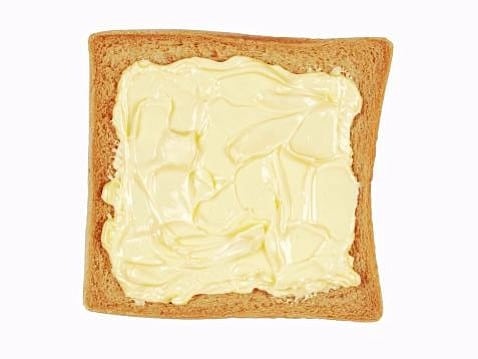Pick a topping that helps lower cholesterol
We know, we know: Dry bread triggers your gag reflex. But before you reach for the butter or some other spread that is full of nothing but empty calories, consider choosing one with cholesterol-lowering sterols. Just two grams each day of these plant compounds can help reduce your total cholesterol by about 10 percent, which could translate to a 20 percent lower risk of heart disease.
Try one of these heart-friendly toppings:
Almond butter is made of crushed almonds. (Some brands contain salt, so check the label.) One ounce of almond butter contains 6 grams of protein, 3 grams of fiber and 34 percent of the recommended daily allowance of vitamin E. Though this spread is high in fat, most of that is the healthy unsaturated kind. Unsaturated fats from almonds help reduce LDL cholesterol, which can reduce heart disease risk.
Avocados contain high amounts of monounsaturated fat, which is heart healthy. They are also high in fiber, B vitamins, copper, vitamin C and protein. Spread a thin piece of avocado on your bread. Mmm … tasty!
Plant sterol and stanol esters form compounds called phytosterols. These are found in plants and help block the absorption of cholesterol in your body. Some foods are fortified with phytosterols, including bread spread. The bread spread has a consistency and taste of margarine.
Hummus, a dip made from chickpeas, is used as a dip for pita chips, crackers and vegetables, but it works just as well as a spread for bread. High in complex carbohydrates, fiber, iron protein and unsaturated fat, a 1-ounce serving contains only 3 grams of fat.
Tapenade (a French hors d’oeuvres made from chopped olives, capers, olive oil and anchovies) is high in fat, so go easy when using it as a spread. And keep in mind that olives and olive oil have high amounts of monounsaturated fats, both of which help reduce cholesterol.






